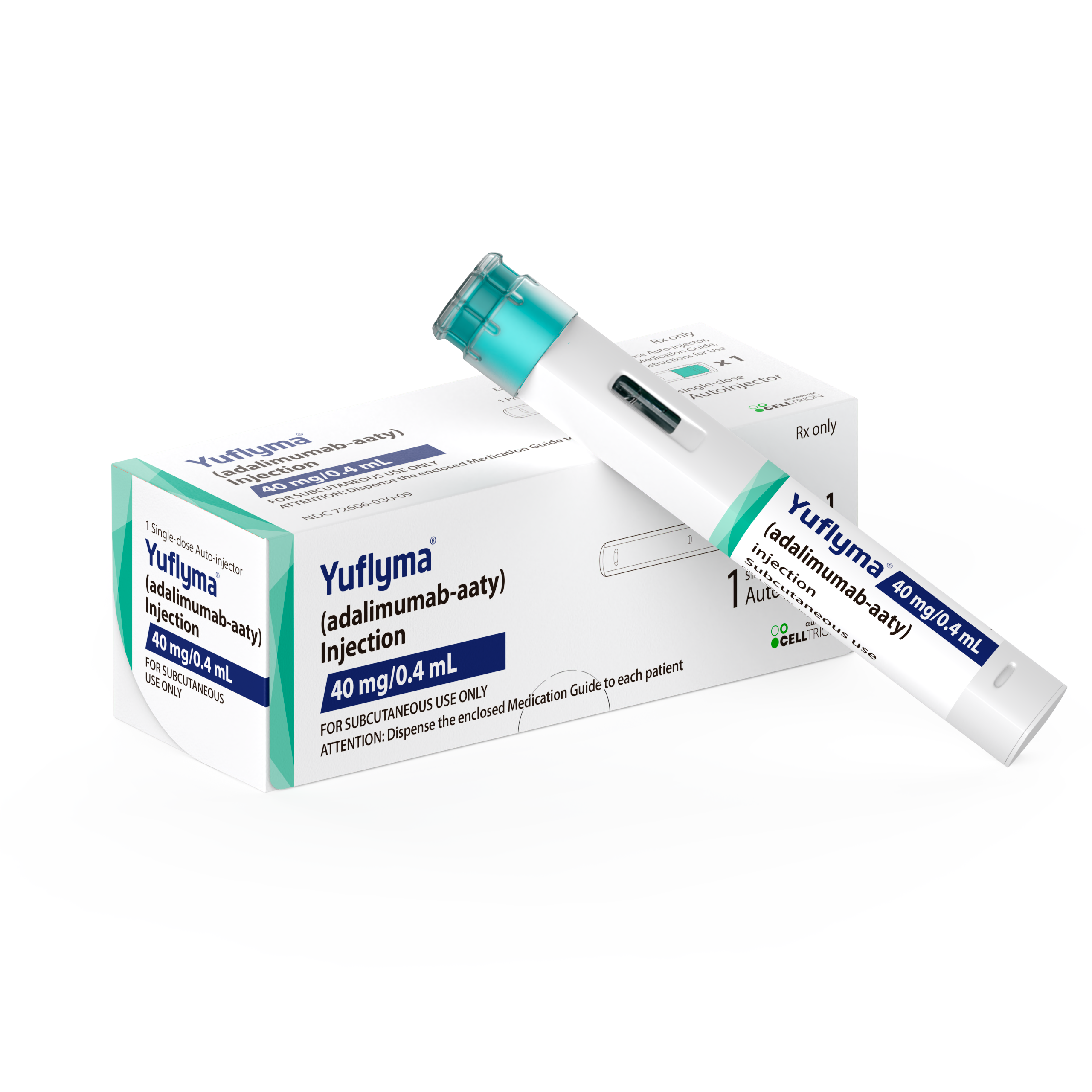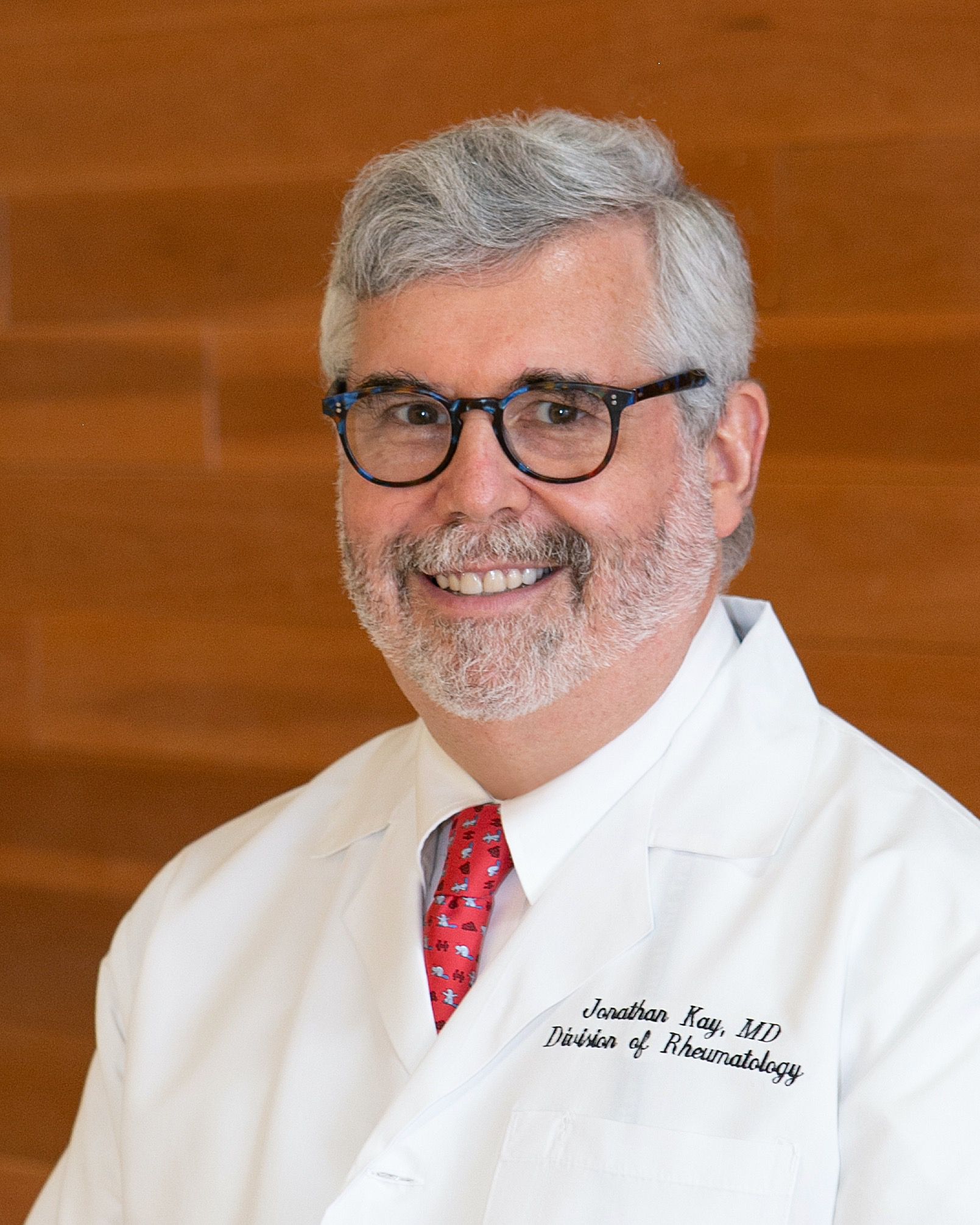- Bone Health
- Immunology
- Hematology
- Respiratory
- Dermatology
- Diabetes
- Gastroenterology
- Neurology
- Oncology
- Ophthalmology
- Rare Disease
- Rheumatology
Celltrion Launches Yuflyma on the US Market
Celltrion USA launched its fifth biosimilar in the United States, Yuflyma (adalimumab-aaty), a biosimilar referencing Humira that is also 1 of 8 adalimumab products expected to launch in July.
Yuflyma auto-injector device and box

Following receipt of FDA approval in May 2023, Celltrion USA has launched Yuflyma (adalimumab-aaty) as one of the first biosimilars to Humira to enter the US market. It is the fifth biosimilar developed by the company to enter the US market.
“The launch of Yuflyma is a critical milestone not only for Celltrion USA, but for patients, health care providers, and payers…. We are committed to providing a patient-centric approach with a focus on increased access to innovative, high-quality biologics in the United States. Celltrion has a demonstrated track record of commercial, regulatory, and manufacturing success globally—including the first monoclonal antibody biosimilar infliximab—and our dedicated immunology commercial team is ready to leverage their experience and market knowledge in the US,” commented Tom Nusbickel, chief commercial officer at Celltrion USA, in a company statement.
Tom Nusbickel, chief commercial officer at Celltrion USA

In July, 8 adalimumab biosimilars are planned to launch, including Yuflyma. The other 7 competitors are Cyltezo (Boehringer Ingelheim), Hadlima (Organon/Samsung Bioepis), Hulio (Biocon Biologics), Yusimry (Coherus Biosciences), Abrilada (Pfizer), Hyrimoz (Sandoz), and Idacio (Fresenius Kabi). They follow Amgen’s Amjevita, which launched in January 2021.
Cyltezo, Hadlima, Yusimry, and Hyrimoz launched on July 1. Yuflyma launched on July 2. Idacio will launch on July 3.
Adalimumab products are anti–tumor necrosis factor alpha monoclonal antibodies that are used to treat several rheumatic and gastrointestinal conditions. Yuflyma is approved for 8 indications: rheumatoid arthritis, juvenile idiopathic arthritis, psoriatic arthritis, ankylosing spondylitis, Crohn disease, ulcerative colitis, plaque psoriasis, and hidradenitis suppurativa.
Yuflyma is a high-concentration (100 mg/mL), citrate-free adalimumab product and is the third high-concentration adalimumab biosimilar to launch in the United States (following Hadlima and Hyrimoz). Celltrion USA has filed an application with the FDA to conduct a switching study for the purposes of obtaining an interchangeability designation for the biosimilar. So far, only 1 adalimumab biosimilar has an interchangeability designation (Cyltezo). Yuflyma is also 1 of 3 high-concentration adalimumab biosimilars and is the only FDA-approved adalimumab product that does not have a low-concentration option.
Over 80% of patients treated with Humira in the United States are administered a high-concentration, citrate-free formulation. Yuflyma also has a longer shelf life than the originator, maintaining stability at 25℃ (77°F) for 30 days, and is administered via a latex-free device.
Jonathan Kay, MD

“The launch of Yuflyma provides patients with one of only a few FDA-approved adalimumab biosimilars that has a high-concentration, citrate-free formulation. This formulation can reduce injection discomfort for patients with chronic conditions like rheumatoid arthritis, thereby improving adherence to treatment,” said Jonathan Kay, MD, a professor at the University of Massachusetts Chan Medical School.
The wholesale acquisition cost of Yuflyma is $3288.25 per single-use unit to administer. The biosimilar is available in auto-injector and prefilled syringe options.
In addition to the launch, Celltrion USA announced that it is offering the Celltrion CONNECT Patient Support Program along with Celltrion CARES Co-pay Assistance Program that will commence July 10.
Celltiron USA went into more detail about the program, saying, “The Patient Support Program for Yuflyma will provide benefits verification, prior authorization assistance, and co-pay assistance. Eligible patients with private/commercial insurance may receive Yuflyma for as little as $0 out of pocket per month. Patients who are uninsured or underinsured may be eligible to receive Yuflyma through the Celltrion CONNECT Patient Assistance Program. Nurses will be available to answer patient questions and provide training.”
Newsletter
Where clinical, regulatory, and economic perspectives converge—sign up for Center for Biosimilars® emails to get expert insights on emerging treatment paradigms, biosimilar policy, and real-world outcomes that shape patient care.
